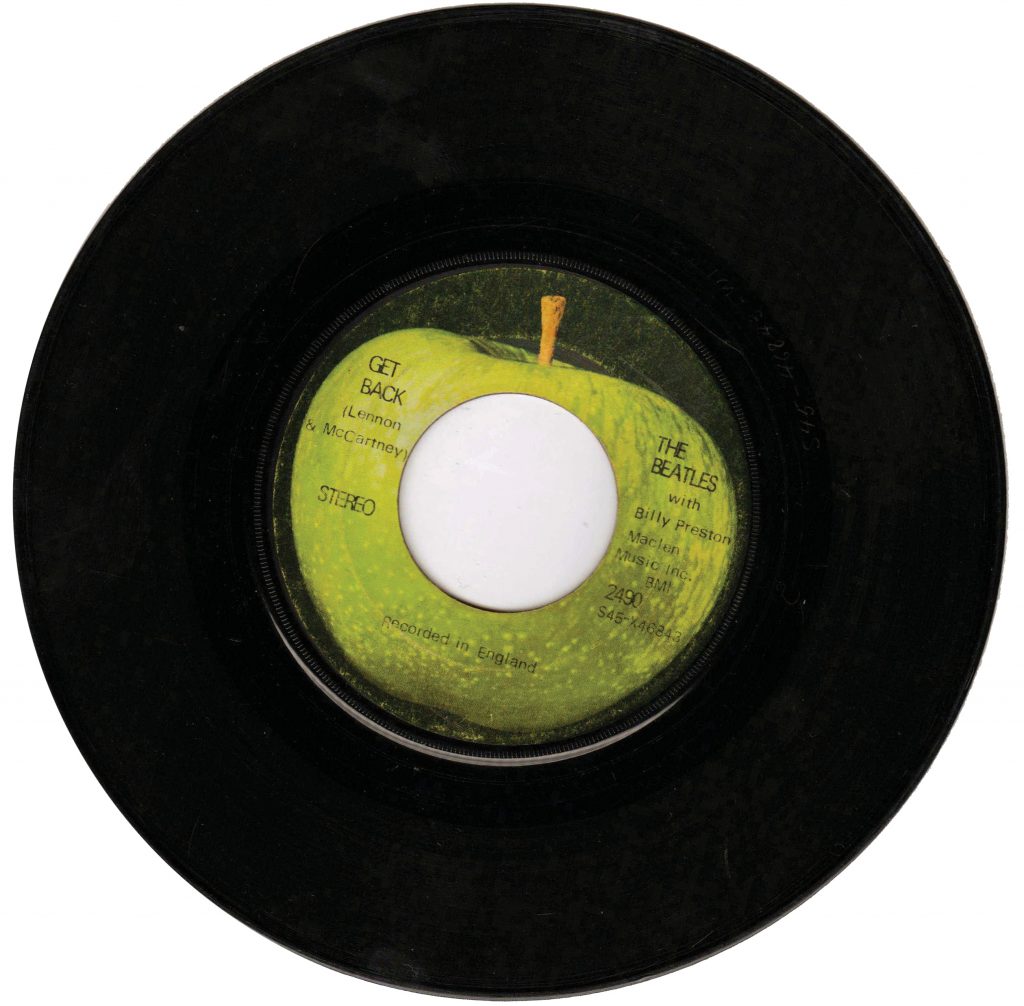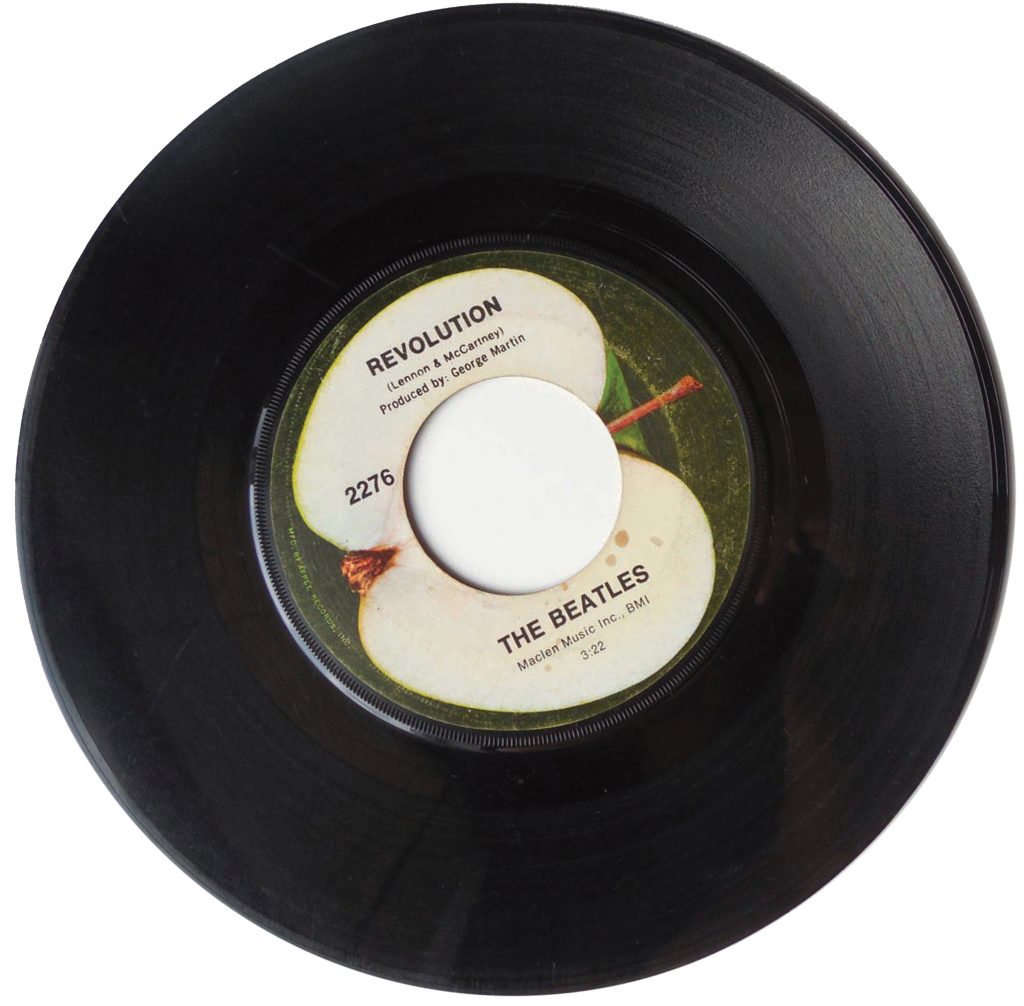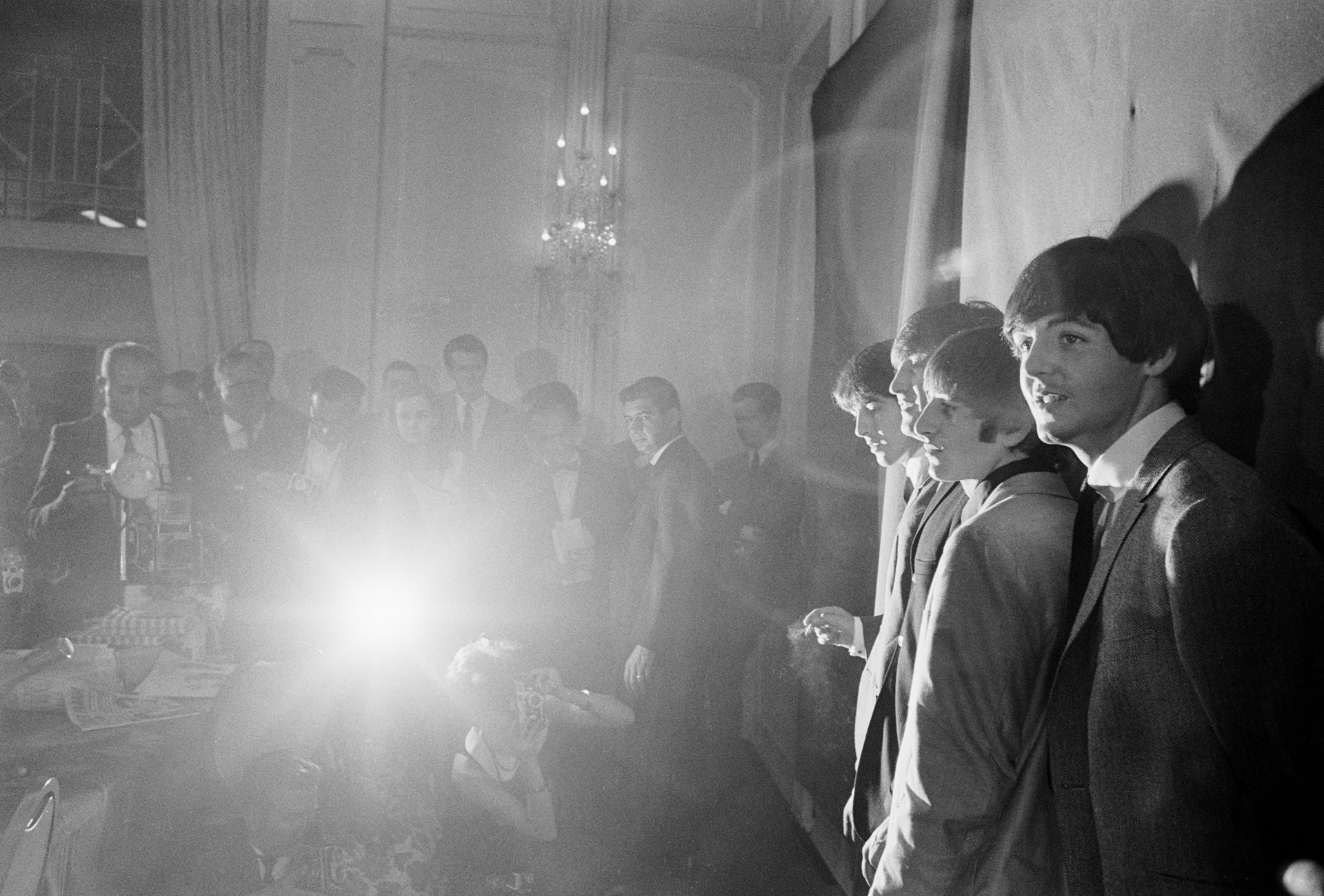If Paul McCartney would have written “Yesterday” based on the first words that came to his mind, the song would sound like a concupiscent teen singing about breakfast:
Scrambled eggs, oh, my baby, how I love your legs…
The melody of the song, which has been broadcasted on American radio more than 7 million times and holds the record for the most recorded song in history, came to him in a dream. When he awoke, he hurried to the piano in his loft to play it, but the words didn’t come quite as easily. So, he scribbled down some simple lyrics to help commit it to memory, until he later found the perfect words to pair with it:
Yesterday, all my troubles seemed so far away…
“The way we look at the world is reflected in our language,” says Jamie Pennebaker, an expert in linguistic psychology at The University of Texas at Austin. “So, if I’m a young guy, looking around, eager for love, sex and attraction, it’s going to reflect in the language I use and the references I make.”
The Beatles, who’s members were all around 20-years-old when Beatlemania exploded onto the pop music scene, had their fair share of schoolboy fun with their lyrics. Take the song “Why don’t we do it in the road,” a song written after McCartney witnessed two monkeys causally procreate in the middle of a path in Raipur, India; or consider the backing vocals for “Girl,” which the band deceitfully assured their producer were “dit-dit-dit-dit-dit-dit.”

McCartney explained the innuendos in a recent interview with GQ magazine: “It’s kind of pathetic, but actually a great thing in its pathos because it’s something that makes you laugh. So, what’s wrong with that?”
Over the years, Beatles have also been slammed and banned by radio stations for their lyrics that allegedly alluded to drugs, for example “Fixing a Hole” or, more popularly, “Lucy in the Sky with Diamonds.” But their massive audience of baby boomers, who may have also been experimenting with sex and drugs at the time, never seemed to mind the references. The band spent a record 1,278 weeks on the Billboard chart, 175 of which were at number one.
“People are commonly influenced by songs that hit them between the ages of 14 and 22. That’s why your parents tend to listen to ‘oldies’ music in the car,” Pennebaker adds. “The Beatles were writing about love and topics associated with coming of age. It was relevant to their generation and sounded different than music from just five years before. That’s why they had such a mass appeal.”
“The way we look at the world is reflected in our language.”
James Pennebaker
But, just as everyone does, the Beatles and their lyrics changed over time, reflecting their different experiences and reckoning with the new society that was evolving around them. “They captured it so well,” Pennebaker remembers.
Over a decade ago, Pennebaker, along with Keith Petrie at The University of Auckland and Børge Sivertsen at the University of Bergen, began researching the lyrical personalities of the Beatles, both collectively and as individual songwriters.
Between 1962 and 1970 the Beatles released more than 300 songs on 12 studio albums, 13 extended plays (EPs) and 22 singles. At the beginning of their career, the Beatles lyrics were full of positive emotion and references to love and sexual experiences — think “Love Me Do” (1962), “I Want to Hold Your Hand” (1962), “Twist and Shout” (1963), and “All My Loving” (1963). The early songs were also very present- or future-oriented, researchers say.
“Earlier songs were characterized by a sense of immediacy, based on the usage of present tense, small words, first-person singular and low usage of articles,” Pennebaker explains. “The use of these words highlights the degree to which someone is living in the moment.”
But as time went on, the Beatles lyrics became more melancholic and psychologically distant, using more negative-emotion words. Pennebaker and his co-authors found that newer Beatles songs used less-social words, which indicates less concern with social relationships. Similarly, their use of larger words increased, signifying both intellectualization and emotional distancing.

“Along with emotional changes, their lyrics became more complex and intellectual over time,” Pennbaker says. “While early songs were related to personal experiences and feelings, later songs were more often written about other people.”
Consider the White Album, which will celebrate its 50th anniversary this November. Compared to previous albums, the White Album sounded starkly different. The Beatles had just returned from several weeks of Transcendental Meditation with Maharishi Mahesh Yogi in India, a seeming turning point in the Beatles’ life cycle where each member began to branch out and explore their own interests, including John Lennon’s special love interest in Yoko Ono and budding heroin addiction.
According to the Beatles Bible, the album marked the first time the Beatles released songs without all the Beatles on the track: Lennon produced “Revolution 9” with Ono and “Julia,” a tribute to his late mother, solo; while McCartney’s “Wild Honey Pie,” “Mother Nature’s Son,” and “Blackbird,” were all recorded without other Beatles members.
Separately, Lennon’s lyrics tended to look inward and focus on his own personal distress — a possible result of his traumatic upbringing, being left by both of his parents, paired with his later struggles with divorce and addiction, researchers speculate.
Lennon’s lyrics were higher in negative emotion and cognitive mechanism words, as if he were reflecting on and trying to make sense of events in his own life, researchers say. Just listen to the words of the songs “Help!,” “I’m a Loser,” or “Don’t Let Me Down.” Interestingly enough, Pennebaker adds, Lennon had a heavy influence on bandmate George Harrison’s lyrical style, as heard in “While My Guitar Gently Weeps,” and “Long Long Long.”
McCartney’s lyrics, however, kept a tighter focus on collective orientation — think, “We can Work it Out” or “Sgt. Peppers Lonely Heart Club Band” — with frequent use of the words “us” and “we.”
Lennon explained to David Sheff in “The Playboy Interviews:” “[McCartney] provided a lightness, an optimism, while I always go for the sadness, the discords, the bluesy notes.”
Perhaps influenced by a more stable background and strong support from his musician father, McCartney’s songs were far more varied and complex lyrically than Lennon’s work and often took on the perspective of others, Pennebaker says. Consider the song “Blackbird,” which McCartney has said was written for black people in America amid the civil rights struggles.
“In the Beatles repertoire there were some songs that Lennon and McCartney agree are complete collaborations,” Pennebaker says. “If you study the lyrics of those songs, you’ll find they are completely different than either one of their individual styles. Their collective mind was much more positive and focused on the present.”

Pennebaker’s observation seems to be one that McCartney finds most gratifying. In his interview with GQ, McCartney said: “One of the nice things about music is that you know that a lot of people listening to you are going to take seriously what you say in the song. So, I’m very proud of the fact that the Beatles output is always really pretty positive. It’s all really ʻlet it be.’ So, it’s hopefully a good message. I particularly like that.”
There’s no denying: The Beatles were the rock heard ‘round the world, from Liverpool to Los Angeles. Each member of the Fabulous Four brought something unique to the Beatle’s sound, allowing them to captivate audiences with messages of love, sex, anger, chaos and confusion against the backdrop of the Vietnam War, harshening race and gender tensions and a rise of the hippie counterculture movement. Still today, they are defined by their creativity and celebrated for their undying influence, “Here, There and Everywhere.”
Catch Paul McCartney, headlining at Austin City Limits October 5 and 12.
